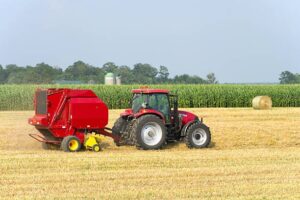High tensile strength baling twine is used to wrap round bales of hay or straw. It is rot-resistant and mildew-proof, making it more durable than other types of twine. It is also easy to work with and clogs machinery less.
It is designed for use on large square and small square balers. It offers a high knot strength and is made for harsh Australian conditions, with UV protection. For more high tensile strength baling twine, click here.
Polypropylene twine
 It’s an essential tool for every farm or ranch. Twine can mend a fence, reattach tractor parts, and steady a wagon. It’s also used to bale hay and other crops. Today’s twine comes in a wide array of colours and weights. Here are a few things to consider when selecting the proper twine for your needs.
It’s an essential tool for every farm or ranch. Twine can mend a fence, reattach tractor parts, and steady a wagon. It’s also used to bale hay and other crops. Today’s twine comes in a wide array of colours and weights. Here are a few things to consider when selecting the proper twine for your needs.
Polypropylene twine is very durable and has little stretch. It resists rot, mildew, and moisture damage. However, it is not food-safe and is best suited for industrial tasks.
Its tensile strength, which is the kilogram-force (KGF) it can hold before breaking, varies from 110 to 500. The higher the number, the stronger the twine. It also has a yield, the number of feet or yards in a pound or kilo of weight. It can be treated with additives to improve its durability and abrasion resistance. It is also available with a UV inhibitor to protect against premature degradation from sunlight.
Natural twine
Twine can be found in many forms and has a variety of uses, from trussing turkeys to tying off bags of cookies or candy. It can also be used to add a decorative touch to your plating. When choosing twine, it’s essential to consider plies, weight, and tensile strength. These factors influence the type of use the twine will have. The best twines are food-safe, durable, and can withstand heat. For more high tensile strength baling twine, click here.
Twine is made of natural materials such as linen, hemp, cotton, and jute or synthetic materials like polyester and polypropylene. Its tensile strength is measured in kilogram forces and determines how much weight it can support before breaking. The higher the number, the stronger the twine. Its durability makes it perfect for industrial and general use. It is also resistant to rotting and mildew. It’s ideal for securing items in your distribution centre, food truck or retail shop. It’s also easy on the hands and knots easily.
Sisal twine
Raw sisal prices have been capped with polypropylene twine, penetrating sisal’s core markets in agricultural twine and cordage. This has forced farmers to seek alternative sources for their twine. Some have turned to jute, which is similar in strength to sisal twine and has some advantages over poly twine.
Sisal baling twine is made from agave fibres grown in a tropical climate. These fibres are durable and resistant to mechanical damage. They also have a high load strength and good resistance to UV radiation. These characteristics make sisal twine an excellent choice in orchard nurseries and horticulture.
Natural sisal twine is not treated with volatile organic compounds unlike synthetic twine. This makes it safe for the environment and won’t clog sewers. It is also biodegradable and can be recycled into home furnishings such as macrame. It comes in various colours and spool sizes, including a size that fits the storage box of modern balers.
Recycled twine
Whether mending fences, attaching tractor parts or making bales, twine is essential. But what do you do with the end of a roll of twine? In Larimer County, most unused twine is in landfills or burned, creating toxic fumes that harm wildlife and humans. This can also kill livestock if they ingest the twine. For more high tensile strength baling twine, click here.
Thankfully, this problem can be solved by recycling the twine. It’s essential to look for a product with high tensile strength certified by several institutions.
Sending your used twine to a recycling centre is a good idea, as with all plastic waste. This can be arranged through your regular waste handler. You can also contact phs Waste Kit for more information about recycling twine and other supplies such as twine hooks and twine forks.